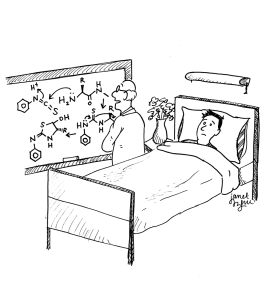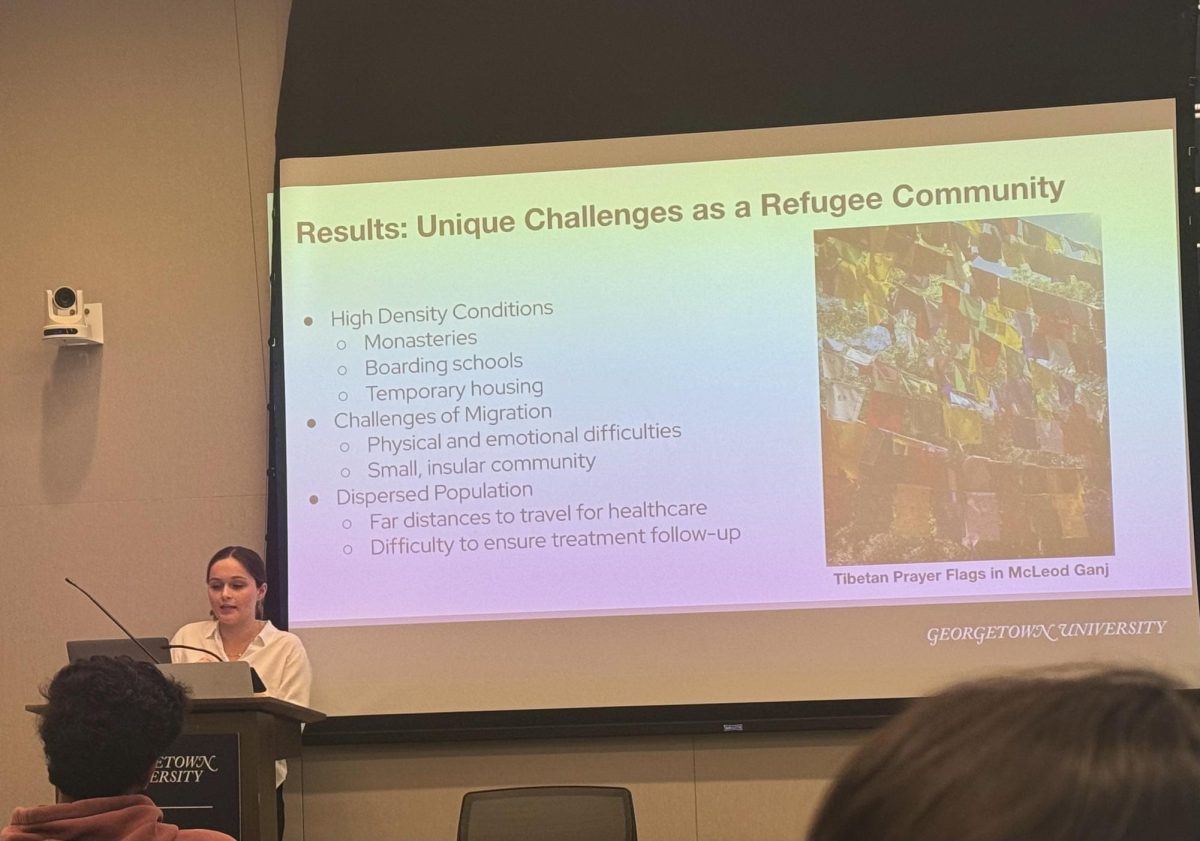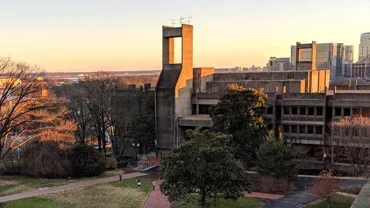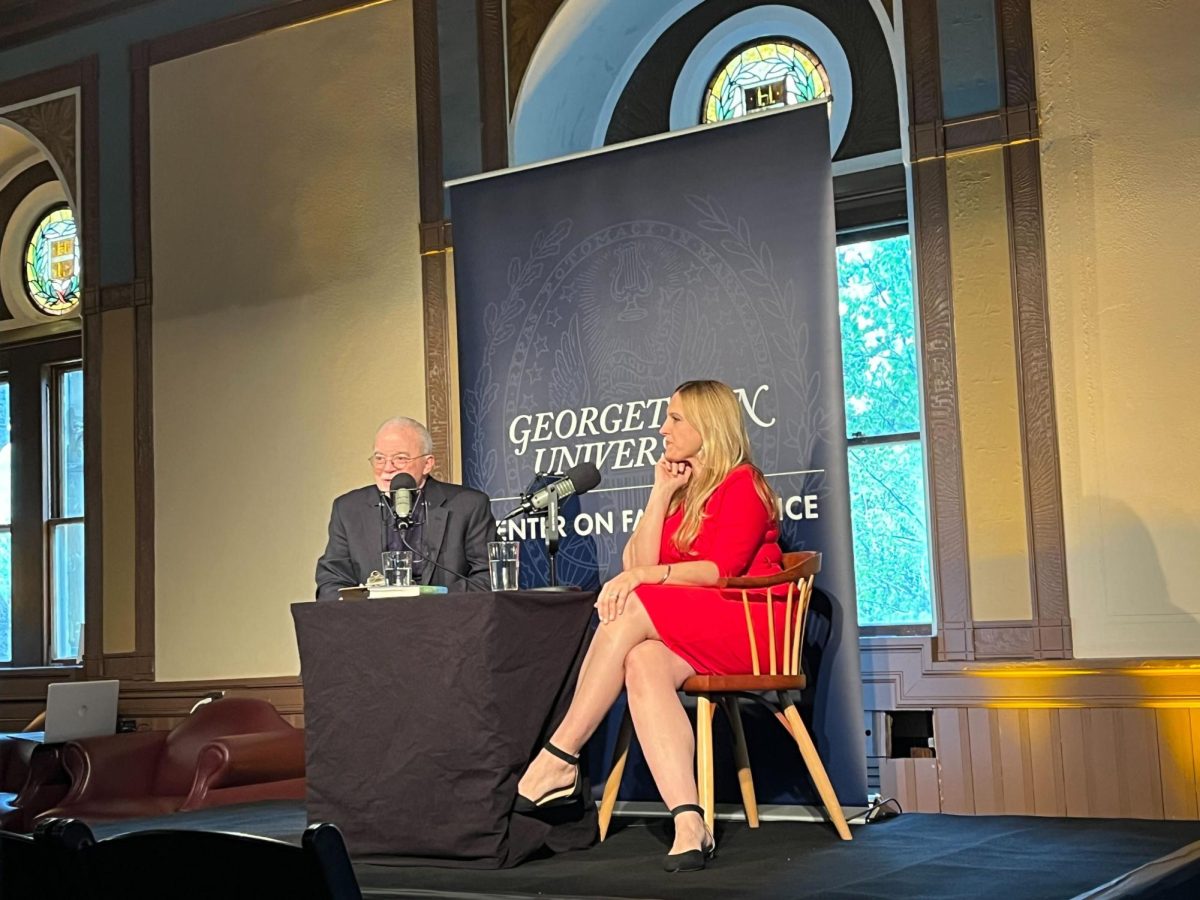
Pre-meds, as we are affectionately called, spend long nights laboring over lab experiments and science problem sets in the hope that we will someday receive the coveted golden ticket: an acceptance letter to medical school.
There is no question that competency in the basic sciences is essential for a future physician. And it is also easy to see how working to understand difficult subjects such as organic chemistry and physics prepares students to tackle complex biomedical problems once they enter medical school. These classes build students’ confidence that they can handle increasingly difficult situations. In both of these areas, Georgetown clearly excels. We have a medical school acceptance rate of 80 percent, which is significantly above the national average.
But within this curriculum lies a problem with our existing conception of how we prepare to become doctors. The way these basic sciences are presented at Georgetown has the unintended consequence of hardening us as individuals. We focus so single-mindedly on the high stakes final grade that there is no time in the curriculum to develop skills such as teamwork, empathy and learning to explain complex ideas to non-scientists. These are seen as extras, whereas getting an A on a lab experiment is essential. Yet these interpersonal skills are every bit as important to a physician as understanding the complex nature of DNA.
Training in interpersonal skills is absent from our pre-medical curriculum, and this has serious consequences. It is estimated that over 400,000 lives are shortened every year in the United States because of medical error. While that number can be attributed to many factors, physicians’ underdeveloped interpersonal skills are certainly one. Simply put, physicians who lack these skills cost lives.
It is not that doctors are bad at their jobs. They are being asked to take on an increasing numbers of patients in the same amount of time. But an overscheduled physician can miss a critical piece of information when he spends an extra minute reading a patient’s chart instead of listening to the patient mention the difficult time he has remembering if he took his medicine in the morning. The best medicine based on the most cutting edge science is ineffective if the patient forgets to take it. We need to train physicians to treat patients as people who live in the real world, to work with patients to find creative solutions that incorporate their health care into their broader lives.
Some argue that medical students learn these skills by osmosis during their clinical rotations and during their residency programs. But osmosis is a process best left to cells, not students. This neglects the reality that medical students have spent at least six years, starting in high school, working through a rigorous curriculum that emphasizes the importance of the correct answer above all else. It is unreasonable to expect medical students to instantly switch to a holistic approach after spending over half a decade working in a zero-sum, highly technical system. The system can, and must, do better.
Georgetown’s undergraduate science program and the Georgetown School of Medicine should collaborate to create a truly holistic pre-medical education that emphasizes not only basic scientific competency, but also empathy, interpersonal communication skills and teamwork. These skills can be incorporated into the standard pre-medical science classes by reimagining what a student is asked to produce.
Rather than simply assigning a formal lab report, why not contextualize the topic of the week in a broader societal implication? A chemistry class could perform the same experiment to determine the pH of a solution, but then apply that knowledge to the issue of acid rain. Students could then be asked to not only explain the chemistry that underlines acid rain, but also to communicate their findings to nonscientists. This approach will prepare students to be better scientists, better physicians and better citizens.
I believe our university has a special calling to do this. Georgetown’s embrace of the Jesuit value of cura personalis provides us with a unique opportunity to revolutionize the medical field by truly caring for the whole person. It is an opportunity to better the lives of both the healers and those who need to be healed. It is an opportunity to be men and women for others.
ANDREW MESHNICK is a freshman in the College.




















